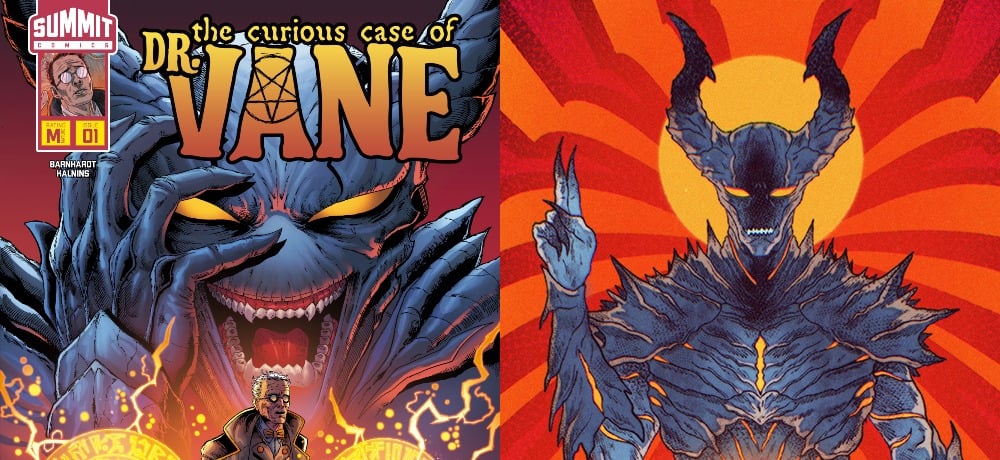





Horror is an intense, irrational emotion, and most of the fiction based around it is likewise heightened, even melodramatic. Then, there are works of horror that creep at a low frequency, finding their dread in calm and silence. Imagine Ernest Hemingway writing a horror novel, where dull conversation flows without notice into violence and terror. You don’t have to ponder too long—just pick up something by Bret Easton Ellis. His sparse, iceberg-theory prose resembles Hemingway’s, but his stories are made of nightmares.
And yet, Ellis has never written a horror novel in the literal sense. He is not Stephen King or H.P. Lovecraft, with undead villains and cosmic overlords tormenting his pages. His monsters are just as mundane as the daily activities that they act upon—sex, drug use, going to get coffee—and Ellis seems quite bored with all of it. This does not mean they’re any less frightening. If anything, Ellis’ apparent apathy is all the more effective because there is no catharsis. He states that monsters lurk all over—within our homes, within our skin. And they will always be present. There is nothing we can do about it.
Patrick Bateman, as portrayed by Christian Bale in American Psycho, has become one of the most iconic faces of horror cinema, and many know that his novelistic counterpart is infinitely more brutal. American Psycho in prose form makes Mary Harron’s film seem family friendly in terms of content. Yet, the film remains more consistently shocking because its violence comes as a surprise, while the novel is completely saturated with gore. Ellis lulls readers with such constant brand details (every single item worn on each character is identified by designer) that they hardly notice when people start getting cruelly, excessively mutilated. He isn’t interested in shocking us, either. Bateman’s main preoccupation is his boredom, so encompassing that he turns to brutality (or fantasizes about it, depending on your interpretation). It is a paean to desensitization, testing a reader’s limits, in the end showing that even normal people can be bored by such viciousness.
Less Than Zero is more empathetic because some of the characters actually react in horror to the things they witness, even though Ellis’ prose remains detached, but others are too jaded or fascinated to be frightened. The images are upsetting enough. A girl shoots up while her friends watch, another has sex with a drugged teenager tied to his bed, a group of drunk kids talk about a rotting body in front of them with little more than passing interest—all of these disturbing events are described without emotion or detail. The narrator, Clay, watches them out of a self-proclaimed desire to “see the worst.” By the end of Clay’s journey, Ellis suggests that there is no end to the worst—it just keeps digressing.
Ellis’ only proclaimed horror novel, Lunar Park, is an even more detached study. It comes off as a mixture of familiar horror elements: a haunted house, possessed dolls, serial killers. It can also be read as the tale of a man who can’t settle down to domesticity. The innocent objects around him—his students, his stepdaughter’s toy, the family dog—become instruments of terror. Even when Ellis is actively working in the genre, his beasts are born of average objects and are left entirely unresolved; the novel’s main focus is the autobiographical narrator’s own, non-supernatural issues. By the end, the most horrifying (or depressing) thing is the narrator’s inability to face himself and his own destructiveness.
The bulk of Ellis’ fiction comes off as fiercely paranoid and despairing. His prose finds murderous thoughts behind every pair of eyes, demons in every room, yet through its spare quality tries to make these things seem normal, and it belittles them to do so. If they don’t seem frightening, then they are not. It seems quite nihilistic, even dangerous, to look at things this way, but when all one sees are monsters, one must come to terms with them somehow.
The utterly nightmarish thing is reading this fiction and discovering that there is truth behind its views. These monsters exist. They hold office, they run schools, they raise families. Does one look the other way and pretend to be numb to the monstrosities, allowing them to go on, but keeping their sanity? Or do we rebel against the demons and throw ourselves into the abyss with them? Ellis offers no answers; he’s already tired of it, of course. But it is difficult, maybe impossible, to shake the impact of his boredom. If we all become desensitized in this way, what do we have left?